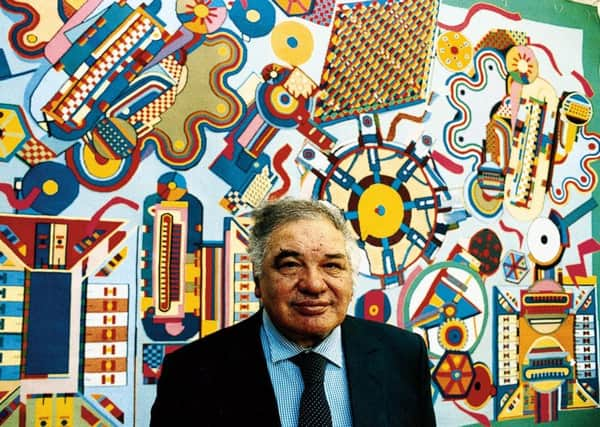Edinburgh is an international city. Let’s keep it that way – Angus Robertson


Our thoroughfares and districts are associated with the international influence on the city. Edinburgh Royal Infirmary is located at Little France, where the entourage of Mary, Queen of Scots was lodged. Streets include Dublin Street, Hanover Street, Baltic Street, Brunswick Street, India Place, Jamaica Street, Malta Terrace, Elbe Street and many more.
Growing up in Stockbridge in the 1970s and 80s, the neighbourhood was noted for shops, businesses and personalities with international pedigree. Haircuts were at the local Raeburn Place barber Otto Goll, while Remo’s sweet emporium was directly opposite, near the convenience stores Abdul’s and Akram’s that seemed to be open 24/7. Then there was the legendary Ping On restaurant run by Kenny Mak, one of the leading lights of the capital’s Chinese community.
Advertisement
Hide AdAdvertisement
Hide AdI lived on the same street as the D’Angelo family, one of the great Italian ice cream makers in Edinburgh, together with the Luca and Di Rollo families. Favourite shops in the city included Valvona and Crolla, with its delicious exotic continental foods and smells. Church on Sunday was at the German congregation at the Meadows with Pastor Schröder.
On Edinburgh’s sporting fields I have cheered people from all kinds of backgrounds, including Scotland Grand Slam winger Iwan Tukalo, the son of a Ukrainian father and Italian mother. I’ve always marvelled at the Scottish accent of Hibs’ Finnish former player and manager Mixu Paatelainen and as a Hearts fan followed the half-French captain of the Jambos, Christophe Berra.
Edinburgh is not just host to the greatest arts festivals in the world, it owes much to trailblazers of international pedigree who helped make it so, from Sir Eduardo Paolozzi, the sculptor and artist who pioneered pop art, to cultural impresario Richard Demarco and the Austrian Sir Rudolf Bing who set up the Edinburgh International Festival in 1947.
Nowadays you can hardly go into a shop, restaurant, hospital or care home, university or college without coming across hard-working staff from across Europe or further afield. According to the National Records of Scotland, seven per cent of the Capital’s population comes from mainland Europe, more than twice the national average. While the city of Edinburgh has an ageing population, 89 per cent of the Capital’s European citizens are of working age, and a higher proportion of them are in employment than the average working age population. They have the lowest rate of economic inactivity when compared to those of us born in Scotland, born in the rest of the UK or born elsewhere. Nearly two-thirds of them have a degree level qualification.
Advertisement
Hide AdAdvertisement
Hide AdIf we are complacent, however, we run the risk of endangering the important contribution made to Edinburgh by Europeans and people from further afield. Latest statistics from the National Records of Scotland shows that population growth and net migration decreased over the past two years. Brexit is largely to blame.
Slowing migration growth is extremely concerning, especially since all of Scotland’s projected population growth over the next 25 years – including our working age population – is projected to come from migration.
Meanwhile, the UK Government is consulting on a minimum salary requirement of £30,000 for skilled migrants and only offering EU students three years’ leave to remain when Scottish degrees take four years. We also know to our cost the negative impact that the Home Office has on the Edinburgh international festivals, by regularly blocking visas for performers.
Edinburgh is more than Scotland’s capital – it is an outward-looking city that values its European heritage and global horizons. Anything that damages its international standing and the ability of European and other international residents to continue making an exemplary contribution must be resisted at all costs.
If you can’t stand the bands, don’t go
Advertisement
Hide AdAdvertisement
Hide AdAre you a keen concert goer? We’re really spoilt for choice in the Capital.
Regardless what kind of music you’re into, we’ve got it. So far so good.
But what venues do you like and what do you not? A bit of a stooshie has kicked off with the latest plans to use the Ross Bandstand in Princes Street Gardens to host the Edinburgh Summer Fiesta in July.
The programme has been expanded to nine shows this year and will include Lewis Capaldi, Florence & The Machine, Madness and Primal Scream. There will also be tribute acts to Elvis Presley, Queen, The Jam and Status Quo.
Advertisement
Hide AdAdvertisement
Hide AdAccording to heritage campaigners from the Cockburn Association, it risks turning the park into a “theme park”. Strange that. I don’t remember complaints when the Edinburgh Chamber Orchestra started accompanying the Festival Fireworks Concert. Surely we should celebrate all kinds of culture and use our magnificent public spaces? If you don’t like it, don’t go.
Nothing newsworthy unless it’s London
Edinburgh is a media capital with important print, broadcast and digital journalism.
The Scotsman and Evening News are newspapers brands of high standing, the BBC and STV have Edinburgh bureaux, as do news agencies and a bright range of online news and opinion.
If, however, you were to listen to network BBC radio or watch BBC TV programmes which carry press reviews, you would struggle to find any mention of the media from outside London. Despite big news stories last week in both the Scotsman and Evening News, neither of the newspapers warranted a mention on network BBC.
Advertisement
Hide AdAdvertisement
Hide AdIn more than 60 newspaper mentions on the flagship BBC Radio 4 Today programme, not a single one of them was from a newspaper produced outside London. By international standards that is not normal.
In other countries, like Germany, public radio reviews the newspapers from across the country, and not just from the capital.
What a shame that the BBC is so parochial as to ignore the media in Edinburgh, Glasgow, Cardiff, Belfast, Manchester and many other cities around Britain.